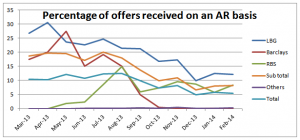It has always been the case among millionaires; you’d see their two-digit roomed mansions in the news or the Internet. You hear about property and business acquisitions by a certain Western millionaire. Real estate, for good or for bad, had always reaped positive results. They may take some time to pay, but why are millionaires and nest-egg masters always going for the high road?
An Alternative (Sturdy) Investment
“Real estate is generally accepted as an alternative investment [by high-net-worth investors],” says Simon Jochlin, portfolio analytics associate at StennerZohny Investment Partners, part of Richardson GMP in Vancouver.
“It has the characteristics of an inflation hedge: yield, leverage and cap gains. It does well in upwardly trending markets, it pays you to wait during market corrections and typically it lags equities in market declines – it buys you time to assess the market.”
Is A More Logical Choice
“For example, if you own a rental condo, and the one across the hall goes on sale for 30 per cent less than you think it’s worth, you wouldn’t automatically put yours on the market and sell, too, because you think there is a problem. Indeed, you may actually buy the other condo,” said Senior Vice President and Portfolio Manager at Raymond James Ltd. Darren Coleman.
“And yet when a stock drops on the market, instead of thinking of buying more, most people automatically become fearful and think they should sell.”
Gives More Leverage
Coleman added that “Banks love to lend against it. Over time, this lets you own a property with a much smaller investment than if you had to buy all of it at once.”
Unknown to many, banks mean to acquire as much property as they can. But to consider a millionaire a financial “pushover” of sorts when it comes to acquiring assets (because they can pay), would be blasphemy. But if indeed a millionaire slips up on a property, the bank is more than willing enough to buy, improve and re-sell the property at a higher rate relevant to its immediate environment.







